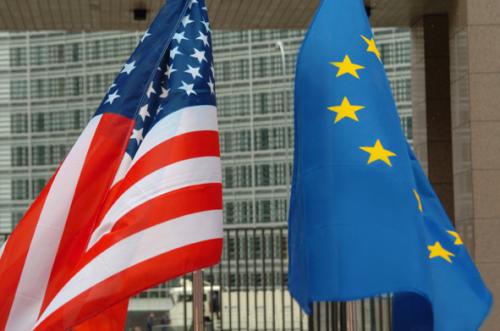Maybe it’s the heat here in Washington, but the news from Brussels and down the street from Congress leaves my mind baffled and my blood boiling. While Europe has ended the week slightly ahead of the United States in restoring confidence that maybe they won’t let their economy tank, it still feels an awful lot like kids running with scissors in the capitals of the world’s two largest economies.
First, to Europe. The rescue package for Greece put together yesterday by Eurozone leaders buys more time, but is still not the comprehensive solution that Europe needs, nor does it guarantee that Greece will be saved. Markets have reacted with cautious optimism, but we’ve seen this before, and the rally is usually short lived as investors educate themselves on the real implications of the deal.
As Professor Leszek Balcerowic noted in my interview with him last week, a key component of long-term solvency for Greece is to cut interest rates on its obligations (including from private sector creditors), and to unleash the productive capacity of the economy. By those standards the deal was a decent success; the lending rate for ESFS funds is at 3.5 percent—down from the previous 4.5 percent. The $157 billion increase in overall funding will ease the immediate burden, and the private sector’s additional $185 billion through the end of 2020 works out to a 21 percent haircut for investors. Greece has asked the European Commission for technical assistance in managing its fiscal reforms.
But there are still problems. Ratings agencies have a big shoe they could drop if they deem the workout a selective default. It seems likely they will. While the ECB has expressed a willingness to essentially ignore that fact, investors can’t and won’t. Second, the whole deal hinges on Greece resuming growth. With a still whopping 130 percent debt-to-GDP ratio and major fiscal cuts, it’s hard to see how growth is going to be very dynamic over time. While the statement from the Institute of International Finance (which speaks for the private sector on these issues) says they expect a 90 percent participation rate, the final sentence of the communiqué is crucial: “Our offer is conditioned on the comprehensive economic reform program of Greece, the strong support of the EU, which has just been reinforced, and additional support by the IMF.” Watch this space.
Most importantly, European leaders are still not confronting the larger issues of how, over the long term, growth will be robust and better balanced in the EMU. And while Angela Merkel has made some large concessions, her initial starting point was unworkable, and her present point is only the beginning of an inevitable march toward further fiscal consolidation.
In the United States the situation is more maddening for its utter pointlessness. An emerging deal that would punt on tax hikes, make spending cuts, and raise the debt ceiling is a similarly palsied approach to tackling our larger fiscal issues. There isn’t a serious economist or budget analyst who believes that the country can restore fiscal discipline without a combination of cuts and increased revenue. While markets will heave a sigh of relief and pray for a nice sleepy August once the limit is eventually raised, come September the increasing chill in the air will sharpen investors’ and businesses’ anxiety over how, in this political climate, Democrats and Republicans will responsibly address the issue.
The greatest casualty in all this is transatlantic leadership of the economy, and the effects that has on our ability to project soft and hard political, economic, and military power.
Particularly in the United States, our political discourse is bitter, acrimonious, and devoid of any sense of optimism about the future. This year was meant to be about a gradual recovery and building momentum toward a return to economic growth; maybe even a sense that prosperity for the North Atlantic was again achievable. Instead, the United States has driven itself to the brink of defaulting on its full faith and credit, and Europe has wasted precious months trying to stave off the inevitable. I can appreciate the incredibly challenging set of issues Europe faces and give due credit for the previously unthinkable actions they’ve taken. But European leaders should have spent less time trying to dictate to markets and instead worked harder to generate domestic support for needed measures.
As we limp into August the stage in both regions is set for more fighting, and not for progress. To change this, political leaders will need to make unpopular decisions and show real backbone when dealing with (often understandably) irate constituents. Failing that, the mantra of Western decline will pick up speed apace with our slowing economic growth and global influence.
Alexei Monsarratis director of the Atlantic Council’s Global Business and Economics Program. He previously spent six years with the U.S. State Department in the Bureau of Economics, Energy, and Business Affairs (EEB), where he worked on a range of issues with transatlantic partners, including economic development and poverty reduction, post-conflict reconstruction, strategic economic policy relations, and energy issues.
Image: US_Europe.jpg
